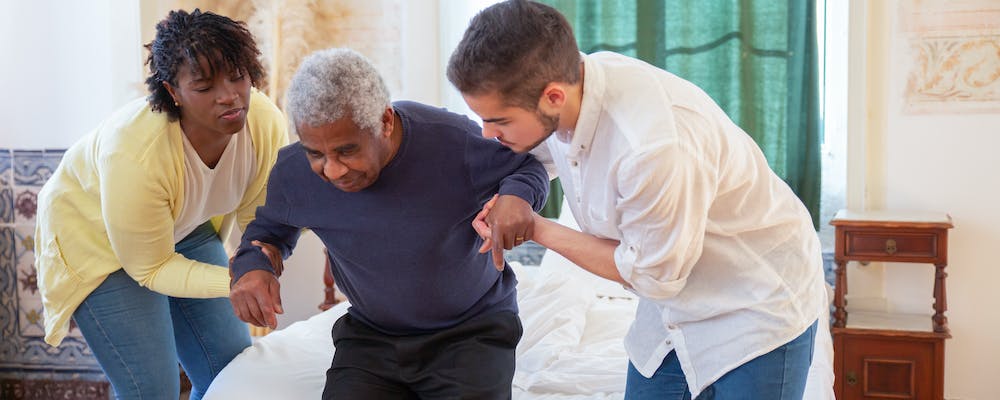
Addressing anxiety in the elderly requires a specialized approach, considering the unique factors that influence their mental well-being. For many older individuals, their environments may be changing due to illness or mobility issues. Depending on the situation, a family member may suggest that their senior loved ones move to an assisted living facility or enquire about home support services. While these decisions are often difficult or uncomfortable to make, ultimately, these services can enhance the quality of life and relieve caregivers from demanding duties. This blog post will aim to offer practical advice and insight on how to provide meaningful support to senior loved ones who may be struggling with anxiety.
Sleeping Habits
Adapting seniors’ sleeping habits can play a significant role in managing anxiety and improving overall health. Professional home support services can help seniors who find it challenging to establish a healthy bedtime routine. Encouraging seniors to stick to a consistent bedtime can help regulate their sleep-wake cycle. Quality sleep is especially important for seniors with memory loss as it maintains cognitive function. A good night’s sleep can help in consolidating memories and supporting brain health that provides better quality moments during the hours they are awake.
Routines and Social Connection
A stable day-to-day schedule can be extremely beneficial for seniors when it comes to managing stress and anxiety. Routines can help alleviate feelings of uncertainty and confusion that may come with certain cognitive illnesses such as dementia. Knowing what to expect and having daily duties can provide a sense of control and confidence for all seniors. Home support services can help seniors build and establish a personalized routine that works best for them while also maintaining their favourite hobbies and activities. Social connection can also provide support to seniors facing anxiety. Friends, caregivers from home support services or members of the community can offer individual emotional support and reassurance. Having someone to share feelings of worry or loneliness with is one of the most important and practical tips of all.
Physical Exercise
Moving your body is one of the most simple and effective ways to combat feelings of stress and anxiety for people of any age. For seniors, maintaining regular exercise has a huge list of benefits that go beyond just improving physical health. Movement helps regulate cortisol levels, the hormone associated with stress. By maintaining a healthy balance, seniors can better manage stress and anxiety in their daily lives. Exercise has also been linked to a slower cognitive decline. Home support services staff can encourage regular, consistent exercise by incorporating it into the agreed-upon daily routine. Consistency is key for reaping the long-term benefits of physical activity.
Mindfulness and Breathwork
There are many ways holistic ways to approach and treat anxiety in seniors. Mindfulness and breathwork are two tools that can help seniors manage. Mindfulness exercises focus on being fully present and aware in the moment without attachment to thoughts or emotions. This practice may look different for everyone, as the beauty of it lies in its flexibility. Practicing mindfulness can help seniors feel a greater sense of control over their thoughts and emotions, especially during times of anxiety. Breathwork exercises have been shown to activate the parts of the nervous system that counteract the body’s stress responses. Deep breathing exercises may encourage sharper focus in some seniors, giving them a greater sense of emotional balance. If you believe your senior loved one may benefit from mindfulness and breathwork practices, alert your home support services manager. These routines can be done anytime, anywhere and are a useful tool for caregivers to have in their toolbelt.